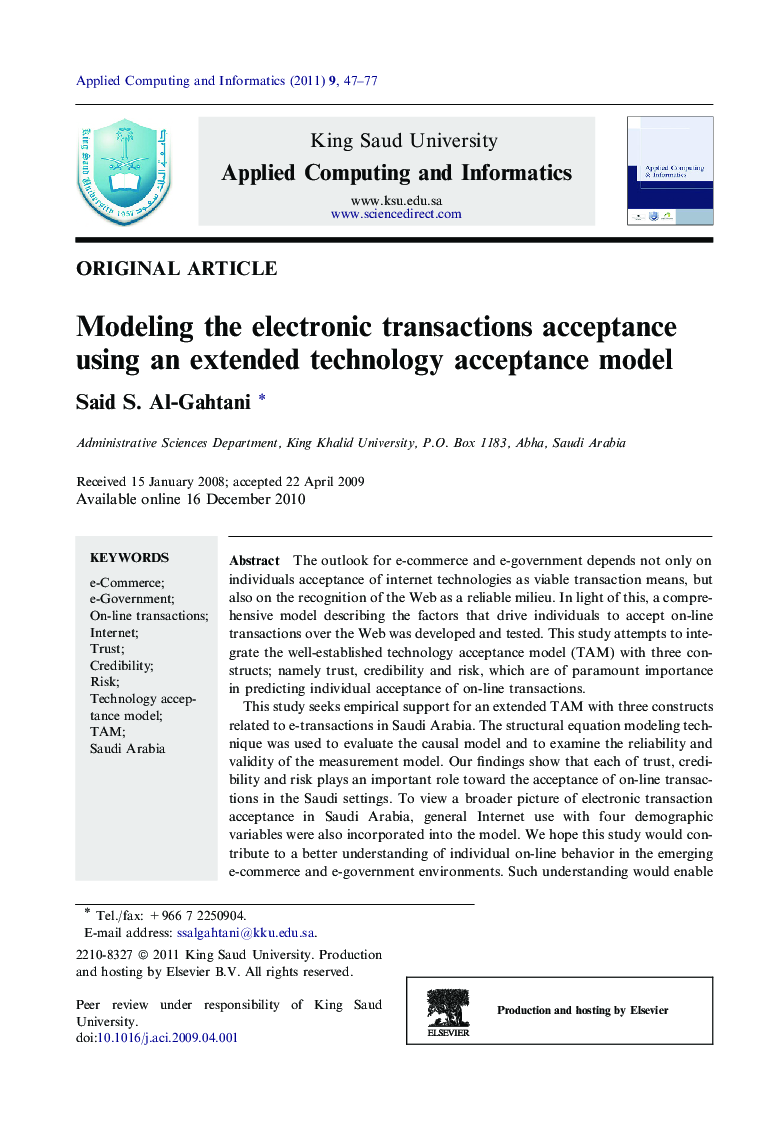| Article ID | Journal | Published Year | Pages | File Type |
|---|---|---|---|---|
| 467408 | Applied Computing and Informatics | 2011 | 31 Pages |
The outlook for e-commerce and e-government depends not only on individuals acceptance of internet technologies as viable transaction means, but also on the recognition of the Web as a reliable milieu. In light of this, a comprehensive model describing the factors that drive individuals to accept on-line transactions over the Web was developed and tested. This study attempts to integrate the well-established technology acceptance model (TAM) with three constructs; namely trust, credibility and risk, which are of paramount importance in predicting individual acceptance of on-line transactions.This study seeks empirical support for an extended TAM with three constructs related to e-transactions in Saudi Arabia. The structural equation modeling technique was used to evaluate the causal model and to examine the reliability and validity of the measurement model. Our findings show that each of trust, credibility and risk plays an important role toward the acceptance of on-line transactions in the Saudi settings. To view a broader picture of electronic transaction acceptance in Saudi Arabia, general Internet use with four demographic variables were also incorporated into the model. We hope this study would contribute to a better understanding of individual on-line behavior in the emerging e-commerce and e-government environments. Such understanding would enable Saudi IT policy and decision makers solve problems in moving to the digital economy and information society.Implications for management and practice of these findings are discussed to improve the acceptance of e-commerce and e-government as new technologies in Saudi Arabia.
